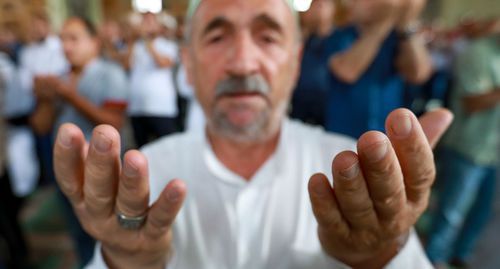
24 March 2020, 23:00
Religious rituals are a threat of mass infection of believers in Caucasus
The Synod of the Georgian Orthodox Church has not introduced any fundamental changes into the procedures of worship and the sacrament (communion) ritual, although the Russian Orthodox Church has recommended disinfecting the communion spoon after each believer. The use of a single spoon for the communion will certainly transfer the coronavirus infection among all the participants of the ritual, if one of the believers is infected, scientists have stated.
The "Caucasian Knot" has reported that on March 16, the Spiritual Administration of Muslims (SAM) of Russia recommended to impose restrictions on visiting mosques for people at risk groups. The recommendations were followed by the Muftiates of Dagestan, Kabardino-Balkaria, Adygea and Karachay-Cherkessia, but in Chechnya they limited themselves to calls for observing the hygiene. In Helsinki, under the quarantine, an online worship service was held at a mosque, but the head of the North-Caucasian Muslim Coordination Centre has criticized the remote prayers.
Residents of Chechnya and social network user have approved the absence of restrictions in their republic. In Makhachkala, believers said that collective visits to mosques, within the fight against the infection should not be either limited at all, or should be prohibited whatsoever.
Coronavirus is transmitted by airborne droplets, therefore, the ban on meetings during the epidemic is justified, said Mikhail Kostinov, an allergist. "In the crowd, even breathing is enough, not sneezing, to infect the surrounding people become," he has stated, adding that using one object during a religious ritual, for example, of a spoon during the communion, is of the same threat.
An infection threat is caused not only by the number of people gathered, but also by the volume of the room in which the meeting takes place, Alexei Potekhin, a microbiologist, has added.
On March 22, at the Sunday service in the Holy Trinity Cathedral in Tbilisi, there were much fewer believers than usual; and the believers stood at the distance of one and a half to two meters from each other, said Eteri Abashidze, a parishioner.
This article was originally published on the Russian page of 24/7 Internet agency ‘Caucasian Knot’ on March 24, 2020 at 01:22 am MSK. To access the full text of the article, click here.
Source: CK correspondents




